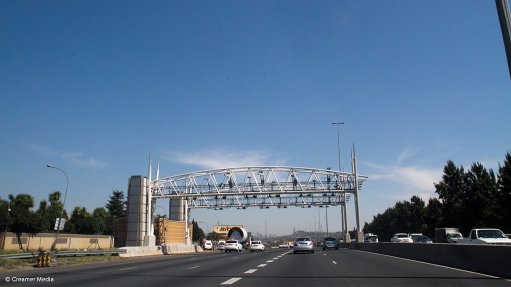
Photo by: Duane Daws
The Organisation Undoing Tax Abuse (Outa) on Wednesday welcomed South African National Roads Agency Limited’s (Sanral’s) newly appointed CEO Skhumbuzo Macozoma’s statement that the agency will be “looking to achieve a balanced funding portfolio with fuel tax-based revenue, as well as toll income.”
“Outa has consistently stated that the seamless fuel levy, which attracts no administration costs, is an existing user pays policy and mechanism best suited to fund urban freeway upgrades. The sad reality is that the Gauteng freeway upgrade would have been paid off by now, if 9c of the national fuel levy had been allocated to this from the onset of the project,” said Outa transport portfolio director Ben Theron.
Macozoma further said the agency would also be “exploring progressive strategies to pursue partnerships with the private sector and civil society to ensure successful national road infrastructure development over the medium- to long-term”.
“This is a welcome departure from the approach taken by former Sanral CEO Nazir Alli, who chose to adopt a less inclusive and adversarial approach, one which has given rise to a stand-off between society and the state on the Gauteng e-toll situation.
“This stance has also affected relationships between the State and other communities affected by toll routes, such as the Western Cape, Wild Coast, Harrismith, Waterval Boven, Swartruggens, Pretoria North/Stormvoël area and many others over the years,” said Outa.
Theron further noted that Outa agreed with the Presidential Infrastructure Coordinating Committee that roads were critical for the nation’s infrastructural growth, but that there needs to be a better approach to decisions on financing social infrastructure.
“Urban freeways are used daily to get to work, schools and places of worship. Accordingly, we believe these are best financed with general taxation and fuel levies, which is a position also supported by the Presidential Committee recently commissioned to review State-owned entities.
“Tolling schemes for long distance economic corridors make sense, but not when these are applied to daily commuter routes such as the Gauteng freeway network. After three years of operation, there can be no doubt that Gauteng’s e-toll scheme has failed to deliver the efficiency required of a user pays funding mechanism. Compliance levels are now below 20% and the time has arrived for government and Sanral to scrap the defunct scheme.”
Outa said it looked forward to engaging with Macozoma, to play a meaningful role in restoring Sanral to its “former glory".
"We will gladly participate in transparent decision-making which is conducted through meaningful public participation, on matters that have the best interests of the public at the core of their intended outcome.”